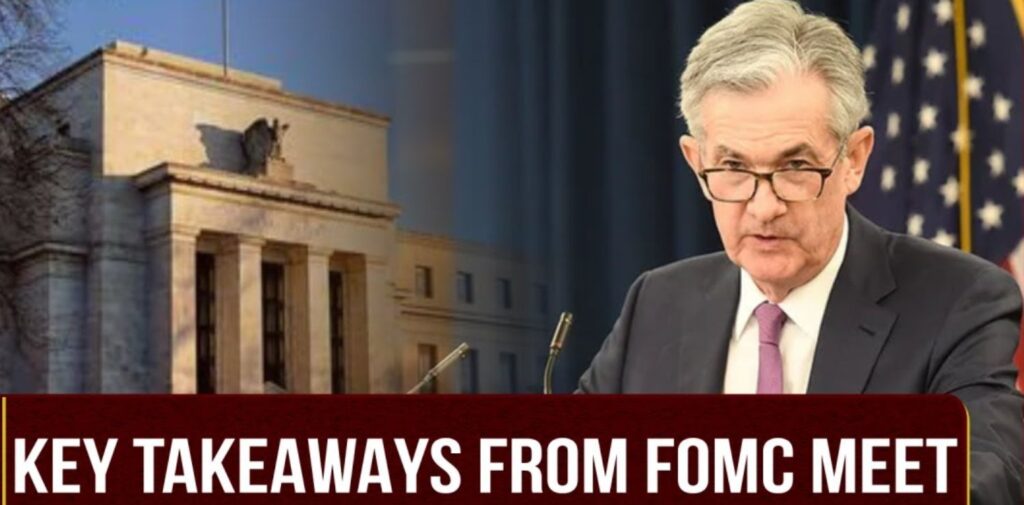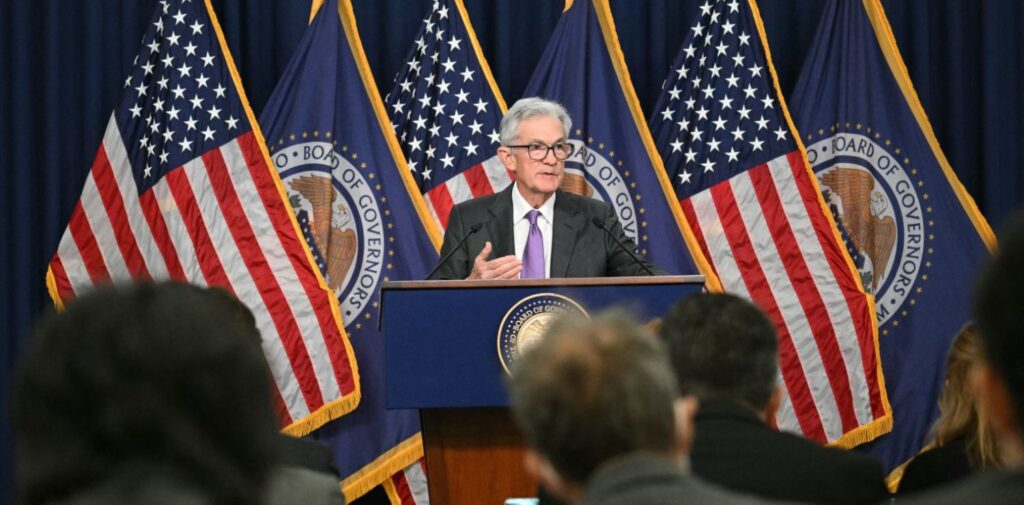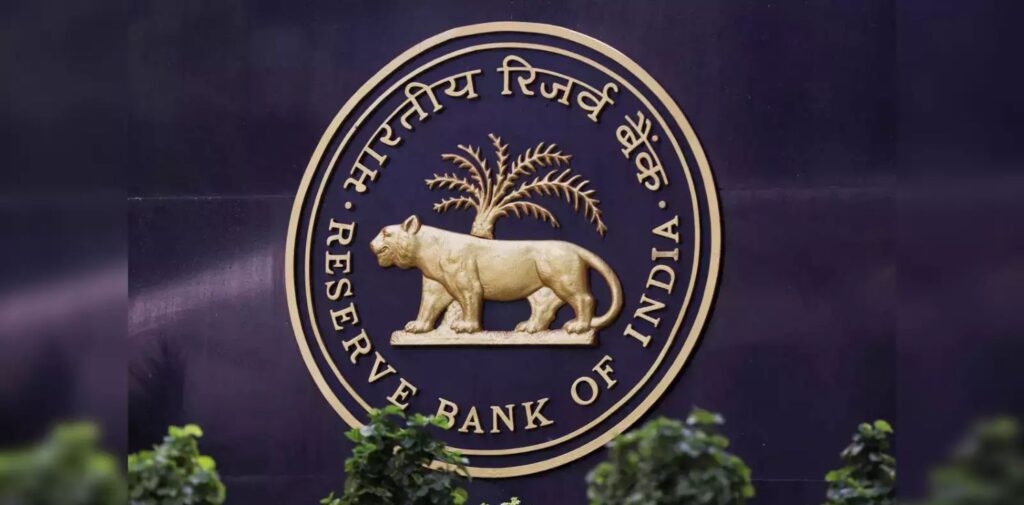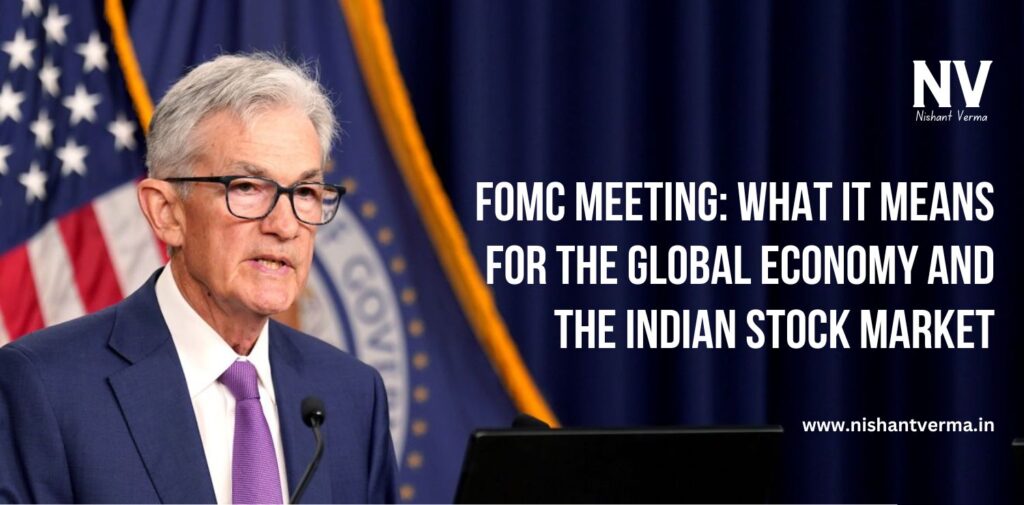The global financial community’s attention often shifts to the Federal Reserve’s Federal Open Market Committee (FOMC) meetings, which determine the monetary policy in the United States. As the world’s largest economy, decisions made by the Federal Reserve can send ripples across global markets. Recently, market participants worldwide have been keenly focused on FOMC meetings, especially regarding interest rate decisions and how they affect the global economic landscape.
Key Takeaways from the Latest FOMC Meeting
The Federal Reserve has been navigating a tricky economic landscape in the aftermath of the pandemic and amidst inflationary pressures. The FOMC’s key responsibility is to manage inflation and stabilize the economy by adjusting interest rates. During its recent meeting, all eyes were on Federal Reserve Chair Jerome Powell as he provided guidance on the future of U.S. monetary policy.
Here are the main highlights from the recent FOMC meeting:
Interest Rate Decisions: The FOMC decided to keep interest rates unchanged after multiple rate hikes in the previous months. The decision to pause was expected by many analysts. However, Powell indicated that further rate hikes might be on the horizon if inflation does not come down to acceptable levels.
Inflation Concerns: Although inflation has eased from its peak, it remains higher than the Federal Reserve’s target of 2%. This has been a cause of concern, as persistent inflation could prompt the Fed to resume rate hikes in the near future. The central bank’s goal is to manage inflation without tipping the U.S. economy into a recession.

Economic Outlook: Powell emphasized that the U.S. economy remains resilient, with strong labor markets and consumer spending. However, the FOMC is wary of potential headwinds, such as rising energy prices and global economic uncertainty.
Long-Term Strategy: The Fed’s long-term strategy appears to be one of caution. Rather than aggressive rate cuts, Powell hinted at a “higher for longer” approach, meaning interest rates might stay elevated for an extended period to curb inflation sustainably
Global Implications of FOMC Decisions
The decisions made by the Federal Reserve have significant global implications. The U.S. dollar often strengthens when interest rates are high, making it more attractive to investors. As a result, emerging markets, including India, may experience capital outflows as global investors seek safer returns in the U.S. market.

Impact on Global Markets: Stock markets across the globe typically react to FOMC announcements. A pause in rate hikes may give a temporary boost to equities, but the uncertainty around future hikes can keep investors on edge. If the Federal Reserve continues its hawkish stance, global markets could witness heightened volatility.
Currency Markets: The U.S. dollar’s strength affects currency exchange rates worldwide. Emerging market currencies, including the Indian rupee, tend to weaken when the dollar strengthens. A weaker rupee could increase the cost of imports for India, particularly crude oil, putting pressure on inflation.
Impact on Interest Rates Globally: Many central banks follow the U.S. Fed’s lead in terms of monetary policy. If the Fed signals prolonged higher rates, central banks worldwide might adopt similar strategies to keep inflation in check. This could result in higher interest rates globally, which could affect borrowing costs for businesses and individuals.
Impact on the Indian Stock Market
The decisions made by the FOMC do not just affect the U.S. economy; they have a profound impact on markets like India. Here’s how the Indian stock market could react to the Fed’s latest stance:
Foreign Institutional Investors (FIIs): FIIs play a crucial role in the Indian stock market. When the U.S. interest rates are high, global investors may pull their money out of riskier emerging markets like India and invest in U.S. bonds, which offer attractive returns with lower risk. This could lead to capital outflows from the Indian market, putting pressure on stock indices like the Sensex and Nifty.
Sectoral Impact: Some sectors of the Indian economy are more vulnerable to FOMC decisions than others. For instance, technology companies that rely heavily on exports to the U.S. may face challenges due to a stronger dollar and economic slowdown. On the other hand, sectors like IT services could benefit from a stronger U.S. dollar as their revenues are largely in dollars.
Banking and Financial Stocks: Higher interest rates globally often lead to increased borrowing costs for businesses, which can affect corporate profitability. Banking and financial stocks in India may experience fluctuations depending on how the Fed’s decisions impact credit demand and interest margins.
Inflation Concerns: If the Federal Reserve’s hawkish stance leads to a stronger dollar, it could make oil imports more expensive for India. Given that India imports over 80% of its oil, higher crude prices can fuel domestic inflation, which in turn could hurt consumer spending and corporate profits.
Market Sentiment: Stock markets are often driven by sentiment as much as fundamentals. Uncertainty around the Fed’s future policy moves could weigh on market sentiment in India. Investors may adopt a wait-and-watch approach, leading to increased market volatility in the short term.
India’s Central Bank Response
The Reserve Bank of India (RBI) is also keeping a close eye on global developments, particularly FOMC decisions. If the U.S. continues to keep rates high, the RBI might be forced to adjust its monetary policy accordingly. A higher interest rate regime in India could help support the rupee and control inflation, but it might also slow down economic growth by increasing the cost of borrowing.

Interest Rate Hikes in India: The RBI may have to consider raising its own interest rates to maintain the interest rate differential between India and the U.S. This could have a direct impact on sectors like real estate, auto, and infrastructure, where businesses rely heavily on borrowing.
Rupee vs Dollar: A higher U.S. interest rate will likely cause the rupee to weaken further against the dollar. This could exacerbate the inflationary pressures on the Indian economy, making imports more expensive and potentially leading to higher consumer prices.
Long-Term Perspective
While the immediate impact of the FOMC meeting is important, it’s essential for Indian investors to take a long-term view. India’s economic fundamentals remain strong, with robust GDP growth, increasing domestic consumption, and government reforms aimed at boosting the business environment. Over the long term, the Indian stock market is expected to continue its upward trajectory, though short-term volatility may persist due to global economic conditions.
Conclusion
The recent FOMC meeting has once again highlighted the interconnectedness of global economies. While the U.S. Federal Reserve’s decisions are primarily aimed at stabilizing the American economy, they have far-reaching consequences for countries like India. Investors in the Indian stock market should keep a close eye on future FOMC meetings, as they will play a crucial role in determining global market trends and capital flows.




